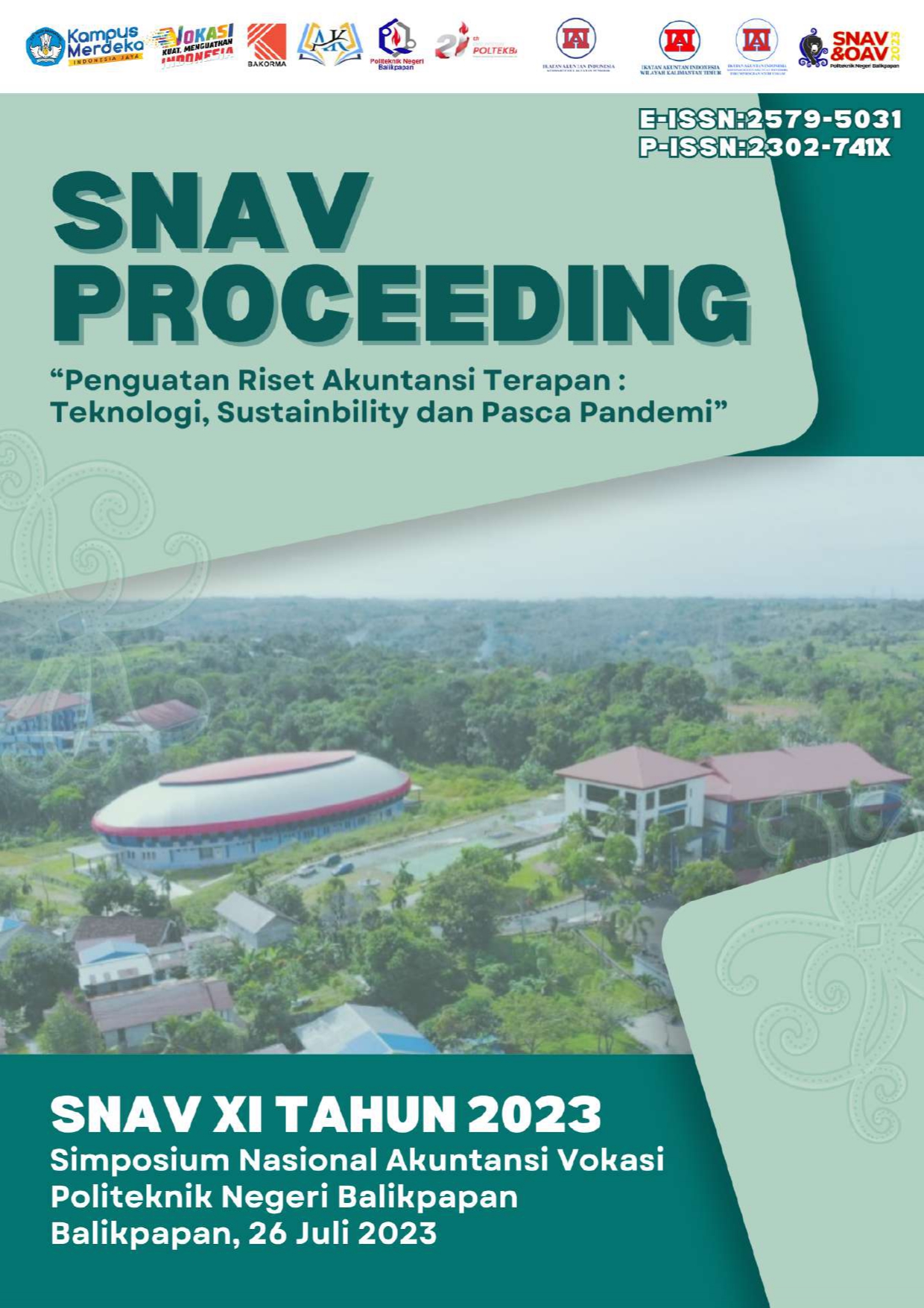ANALISIS DAMPAK CASHLESS TERHADAP PENCATATAN TRANSAKSI KEUANGAN CHAIN HOTEL INTERNATIONAL
I G N Agung Wiryanata
Politeknik Pariwisata Bali
DW Ayu Rai Sumariati
Politeknik Pariwisata Bali
Keywords : : impact, cash transaction, cashless, financial record, hotel
Abstract
This study aims to determine the impact of cashless on financial records at chain international hotels in
Ubud, Bali. The data analysis technique used is qualitative descriptive. The object of research on 3
international hotel chains by looking at the impact of transaction tools used in recording cashless
transactions. The results of research on the impact of cashless transactions on international hotel chains
in Ubud Bali show that cashless procedures require additional forms of cash receipt transactions, but the
recording of transactions in the journal has not changed. The cashless spending authorization process
involves 3 levels involved, making cashless transactions more accurate, secure, efficient and more
accountable. The transaction tools used are credit cards, debit cards, Electronic Funds Transfer (EFT),
and Quick Response Code Indonesia Standard (Qris). Cashless transactions require Electronic Data
Capture (EDC) machines along with an internet network, but do not require a safe to store money, this
reduces the risk of crime, loss, torn money, counterfeit money, and human error and there is no need to go
to the Bank to make transactions. This also makes it easier to track money in and out through bank accounts
with the addition of not so large adminministration fees
Daftar Pustaka
Kamil. Islam, J. (2020). Pengaruh Kemampuan Financial, Kemudahan Dan Keamanan
Terhadap Perilaku Sistem Penggunaan Financial Technology. Jurnal Akuntansi dan
keuangan . http://ejournal.radenintan.ac.id/index.php/al-mal
Busari, A., & Noor, A. (2021). Dampak pembayaran non tunai terhadap perekonomian
indonesia . Jurnal Inovasi. (Issue 3). http://journal.feb.unmul.ac.id/index.php/Inovasi
Ibukun, F. O., & Cynthia, A. C. (2020). A Cashless Policy and Economic Development in
Nigeria. Randwick International of Social Science Journal, 1(2), 53–59.
Margaretha, F. (2015). Dampak Electronic Banking terhadap Kinerja Perbankan Indonesia.
Jurnal Keuangan dan Perbankan (Vol. 514, Issue 3).
Nirmala, T., & Widodo, T. (2011). Effect of Increasing Use the Card Payment Equipment on
the Indonesian Economy. Jurnal Bisnis Dan Ekonomi (JBE), 18(1), 36–45.
Pintubipar Saragih, S. (2019). Pengaruh Budaya Terhadap Actual Use Digital Payment System
Pada Pelaku UMKM di Kota Batam. Journal of Applied Informatics and Computing
(JAIC) (Vol. 3, Issue 2).
Putu Yastiari, N., Ayu Rai Sumariati, D., Agung Wiryanata, I GN. (2022). Tata Implementasi
Penerimaan Kas Non Tunai (Cashless) pada One Resort Nusa Dua Bali. Journal of
Accounting and Hospitality, 1(1), 1-10.
Rahman, M., Ismail, I., Bahri, S., & Rahman, M. K. (2022). An Empirical Analysis of Cashless
Payment Systems for Business Transactions.
Wijaya, B. F., Suhairi, S., & Putriana, V. T. (2021). Evaluasi Implementasi Kebijakan Transaksi
Non-Tunai dalam Konteks Pengelolaan Keuangan Daerah: Studi Kasus di Kota SolokSumatera Barat. Jurnal Ilmiah Universitas Batanghari Jambi, 21(1), 86.
Wiyasha, IBM. (2020). Akuntansi Perhotelan, Penerapan Uniform System of Accounts for the
Lodging Industry. Yogyakarta: Andi Ofset

UNDUH PDF
Published
2023-10-18
Published
Vol. 11No. 1 (2023): Simposium Nasional Akuntansi Vokasi (SNAV)
